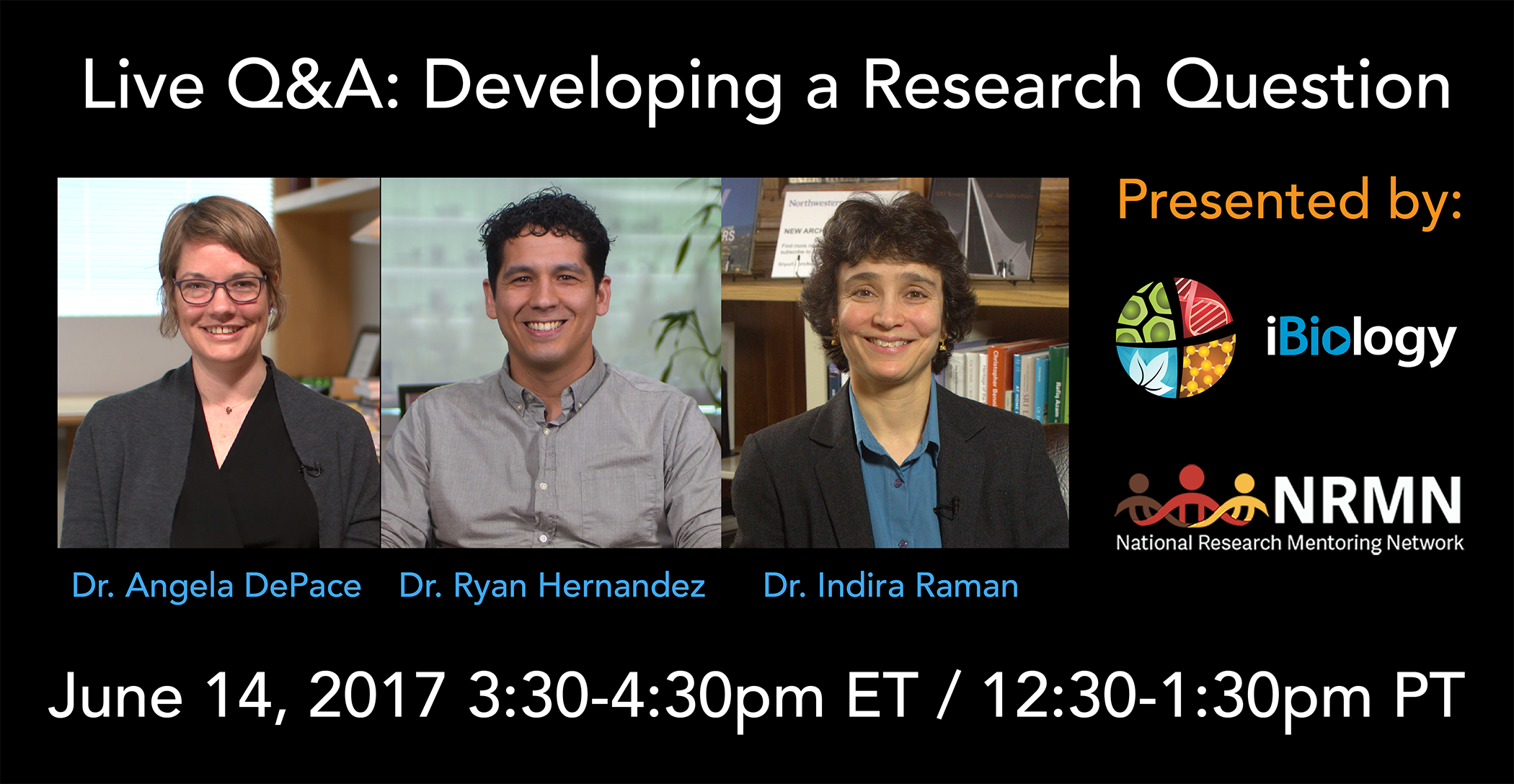
- This event has passed.
Live Online Q&A: Developing a Research Question
June 14, 2017 @ 3:30 pm - 4:30 pm
Developing a scientific question is an essential first step in doing research. A well-formulated question focuses your research and guides your experimental approach. Join for this live Q&A where panelists will offer practical strategies and advice on developing a research question that is specific, meaningful, and feasible. Panelists will discuss some fundamental characteristics of a good scientific question and important points to consider as you contemplate what you want to study or, if you already started a project, how you want to move it forward.
WHEN: June 14, 2017
TIME: 3:30 p.m. ET / 12:30 p.m. PT
WATCH: Visit https://youtu.be/JACQ7eeFn7g during the event time to tune in live.
This live Q&A is hosted in collaboration with iBiology.
Speakers
Angela DePace is an Associate Professor of Systems Biology at Harvard Medical School. Her group is broadly interested in the evolution of transcriptional networks in animals. Whole genome sequencing for a wide variety of organisms has shown that across taxa, the set of protein coding genes is remarkably similar. Her work aims to understand how this common genetic toolkit, in combination with its transcriptional network, can generate organismal diversity. She is also committed to helping scientists communicate effectively. She co-developed and co-teaches a popular Science Communication course at Harvard Medical School. She is also a co-author on the highly regarded book Visual Strategies: A Practical Guide to Graphics for Scientists and Engineers. She received her bachelor’s degree in biochemistry and biophysics from Yale University and then moved on to earn her Ph.D. specializing in biochemistry from University of California, San Francisco.
Ryan Hernandez is an Associate Professor in the Department of Bioengineering and Therapeutic Sciences at the University of California, San Francisco. He studies patterns of genetic variation in modern day populations to gain insights into their evolutionary history. His focus is on the development of population genetic models that can best explain observed data, with the goal of understanding the genetic basis for complex traits. His interests span basic population genetics, human disease genetics, and host-pathogen interactions. His scientific approach tends to be highly computational, often involving a thorough analysis of detailed simulations. He earned his bachelor’s at Pitzer College and then moved on to earn his Master’s and Ph.D. in Biometry at Cornell University.
Indira Raman is a Professor in the Department of Neurobiology at Northwestern University, where she holds the Bill and Gayle Cook Chair in Biology and held Charles Deering McCormick Professorship of Teaching Excellence. Her research is in the areas of ion channel biophysics, synaptic transmission, and cerebellar physiology and she is the recipient of a Javits Neuroscience Investigator Award from NINDS. She has served on several NIH committees including NINDS Council, and has been a reviewing editor for three journals. Essays in which she has expressed her perspectives on scientific research and training have been published in Neuron and eLife.
